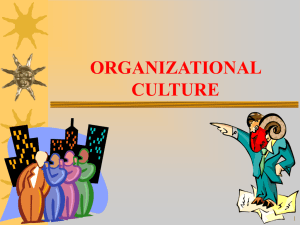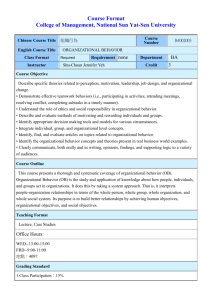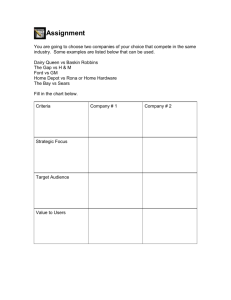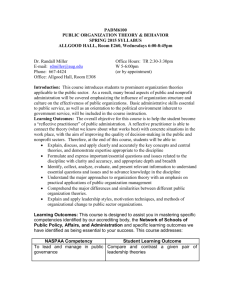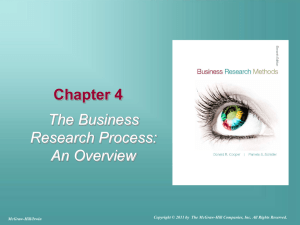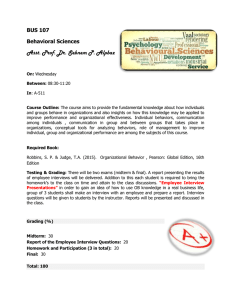Change is often regarded as frightening and exciting
advertisement
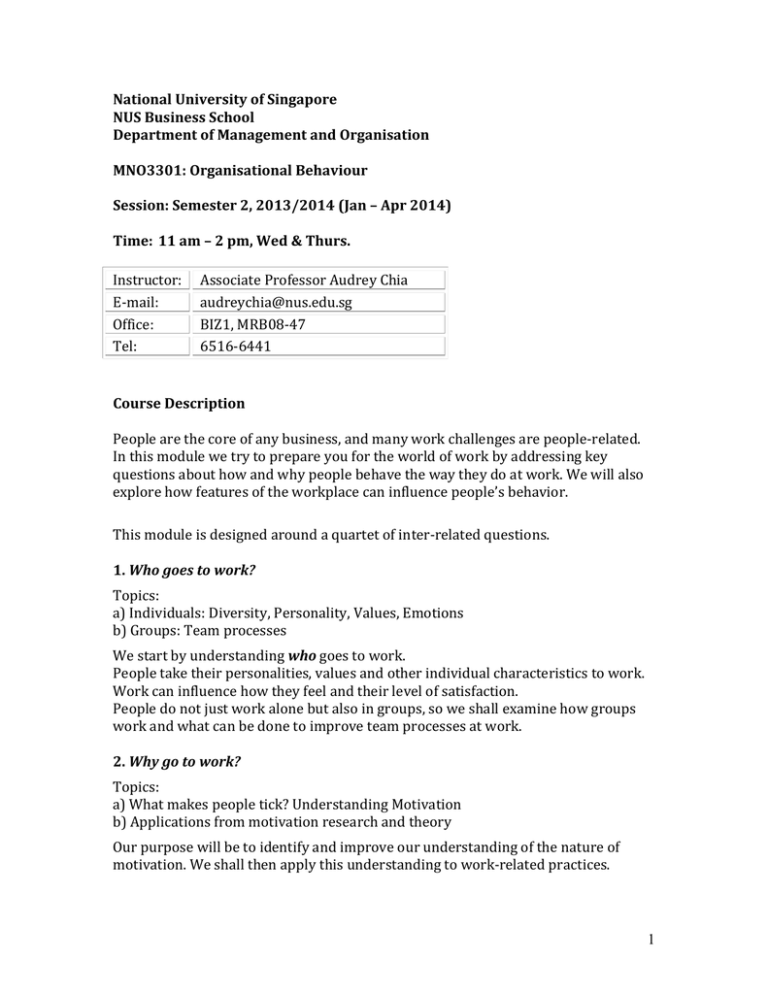
National University of Singapore NUS Business School Department of Management and Organisation MNO3301: Organisational Behaviour Session: Semester 2, 2013/2014 (Jan – Apr 2014) Time: 11 am – 2 pm, Wed & Thurs. Instructor: E-mail: Office: Tel: Associate Professor Audrey Chia audreychia@nus.edu.sg BIZ1, MRB08-47 6516-6441 Course Description People are the core of any business, and many work challenges are people-related. In this module we try to prepare you for the world of work by addressing key questions about how and why people behave the way they do at work. We will also explore how features of the workplace can influence people’s behavior. This module is designed around a quartet of inter-related questions. 1. Who goes to work? Topics: a) Individuals: Diversity, Personality, Values, Emotions b) Groups: Team processes We start by understanding who goes to work. People take their personalities, values and other individual characteristics to work. Work can influence how they feel and their level of satisfaction. People do not just work alone but also in groups, so we shall examine how groups work and what can be done to improve team processes at work. 2. Why go to work? Topics: a) What makes people tick? Understanding Motivation b) Applications from motivation research and theory Our purpose will be to identify and improve our understanding of the nature of motivation. We shall then apply this understanding to work-related practices. 1 3. What is the workplace like? Topics: a) Culture b) Power & Politics There are many ways to characterize workplaces. First, we shall take the perspective of culture, or the assumed way of life in organisations. Second, it is almost impossible to discuss organizational life without examining power and politics. We round off this segment with the classic debate about macro vs. micro influences on the way people behave in organisations. 4. What if you were in charge? Topics: a) Leadership & Change b) Engagement c) Stress and mental well-being Every business graduate will at some point have to lead people and organisations through change, create engagement at work and cope with stress. We shall apply knowledge from the research to create a knowledge base on what to do when we are in charge. Learning outcomes By the end of this course, you should: Understand the micro and macro influences on the way people behave in organisations Recognize and know the effects of group and organizational processes at work Be able to suggest how such knowledge can be applied by organizational leaders and employees. Modes of learning Classes will be conducted in a seminar format. The course will be learner-centered. I will set norms of openness, participation and preparedness because much of the learning in this course will be through peer- and self-learning. You will also learn from a variety of readings and resources that we will examine throughout the course. Learning activities include analyses of cases (local/regional and foreign), debates, critiques of papers, simulation and talks by invited speakers. 2 Learners’ responsibilities Before each class, you will be given a set of readings to complete, videos to watch and questions to think about. To gain the most from each class, you should: Be prepared for all classes, having completed the readings and assignments. This is especially important given the nature of the approach we will be adopting. Y Be responsible for participating actively in class Be willing to question, think critically and learn from others. We will be using group exercises as part of the learning process. You have a responsibility to your group to be prepared for the exercise and play your part. At some point in the semester you will (working in groups) be put in charge of part of a class session. You will have to make sure you prepared to lead the discussion for that session. Outside of classes, my main mode of communication with the class will be via IVLE and e-mail. It will be your responsibility to check your NUS mailbox regularly, and to also read the announcements, updates and other materials uploaded to the IVLE. Learning resources To gain different perspectives, you will read journal articles, book chapters and published cases. The readings are present ways of thinking, illustrative cases and experience-based reflections. The articles are available on e-reserve in IVLE. In addition we will be using a textbook: Robbins, S.P. & Judge, T.A. Organizational Behavior (15th edition). Pearson. Guest speakers will be invited to provide a real-world, practitioner’s perspective on organizational behavior. Academic honesty Please acknowledge all references and sources that you use in your work. This is not just good manners but also academic honesty. Assessment Participation 10% Multiple Choice Quizzes 10% Class discussion & facilitation (in groups) 20% Written Assignment (individual) 30 % Project (report and presentation) 30% 3 Class session Topic Read BEFORE class 1 Introduction and the scope of Organisational Behaviour What is Organisational Behaviour? Why does it matter? Class introduction and expectations Who goes to work? Diversity at work Facets of diversity Robbins & Judge Chapters 1 & 2 2 Who goes to work? Individuals: Unique? Personality Values Robbins & Judge Chapter 5 3 Who goes to work? Distinguishing emotions and moods Functions of emotion Emotional labour Robbins & Judge Chapter 4 4 Who goes to work? Groups Team processes Getting the best from teams Robbins & Judge Chapters 9 & 10 5 Why go to work? What makes people tick? Understanding Motivation Applications from motivation research and theory Robbins & Judge Chapter 7 & 8 6 Integrative session consolidating learning so far Simulation. Simulation materials 7 Characterizing the workplace: Culture: the life blood of organisations Form & substance Effects of culture Cultural intelligence Robbins & Judge Chapter 16 4 8 Characterizing the workplace: Who's got the power? Politics at work Principles of influence Robbins & Judge Chapter 13 9 Being in charge Leadership: What makes a leader? Transformational leadership Robbins & Judge Chapter 12 10 Being in charge Building engagement at work Stress, wellness and resilience Robbins & Judge Chapter 18 plus ereadings 11 Integration & Project presentations 12 Integration & Project presentations The class schedule may be amended when necessary, e.g., to take advantage of other opportunities for learning. 5
